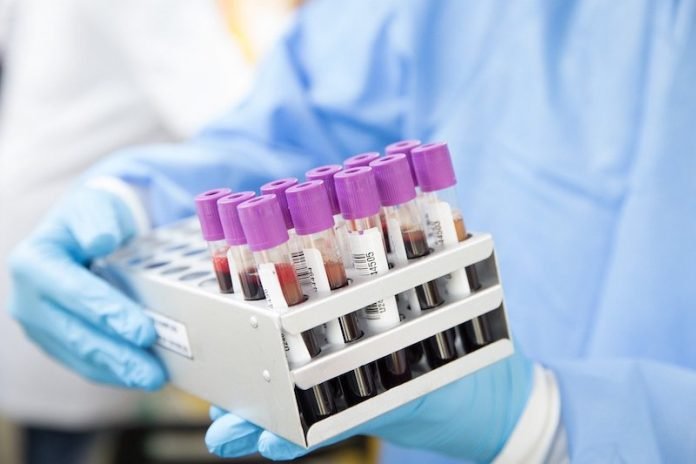
In a new study, researchers found that a blood test already available to GPs in the UK is more predictive of ovarian cancer than previously thought and could also help pick up other forms of cancer.
The research was conducted by a team at the University of Exeter and the University of Cambridge.
The team examined more than 50,000 women who had a specific type of blood test with their GP in England.
The test is for women with symptoms possibly caused by ovarian cancer, which are often non-specific, so it can be difficult to judge what might be causing them.
It looks for a protein in the blood called Cancer Antigen 125 (CA125), which can be a sign of ovarian cancer.
Women with ovarian cancer often have a high level of this protein in their blood, so GPs use this test to help determine if a patient needs referring on for further tests such as ultrasound.
However, this study showed for the first time that CA125 was not only raised in women later diagnosed with ovarian cancer—around 350 women (10%) with CA125 protein levels at or above the cut-off value had the disease—it also found that more than 380 women with an abnormal CA125 result, instead had another type of cancer such as pancreatic, lung or bowel cancer.
The study also found the proportion of women with an abnormal test who had any cancer, was much higher in women aged 50 or over (33%), than women younger than 50 years of age (6%), suggesting that it is a more useful test to use in the over 50s.
Using both age and the level of protein in the blood, the team have developed models that GPs can use in the future to determine the risk of a woman having cancer, giving GPs a better tool to decide if patients need referring on.
Although the test is currently recommended by NICE and is widely used by GPs to help make a judgment on whether cancer referral is required, no large studies have previously evaluated how well the test performs in a primary care setting—an abnormal CA125 result is 12 times more likely to predict ovarian cancer than was previously thought.
The team says this must be considered by scientists when updating guidance.
Ovarian cancer is the sixth most common cancer in females in the UK. The chances of survival are much higher for women whose cancer is diagnosed at an early stage.
Diagnosing ovarian cancer at an earlier stage is one of the most effective ways to improve survival.
93% of people diagnosed with ovarian cancer survive their disease for five years or more if diagnosed at the earliest stage (stage 1) compared to just 13% when diagnosed at the latest stage (stage 4).
Sadly, the disease is often diagnosed late (stage 3 or 4) when cancer has already spread further, and someone’s likelihood of surviving is reduced.
This is partly because symptoms such as loss of appetite, abdominal pain and bloating occur frequently in women without ovarian cancer, making it difficult to work out what is going on until it is too late.
One author of the study is Dr. Garth Funston.
The study is published in PLOS Medicine.
Copyright © 2020 Knowridge Science Report. All rights reserved.



